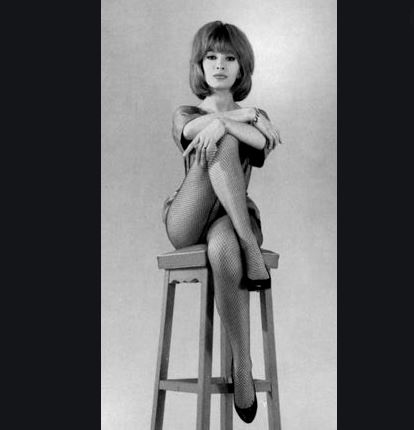Legendary Oscar Winner Lee Grant on the Blacklist, Sex, Sexism, the Treatment of Renée Zellweger
On top of being an Oscar-winning actor and a trailblazing documentarian, Lee Grant is a lovely host—quick-witted, warm, and fiercely candid about the obstacles that life and Hollywood continue to throw into the path of women. Grant—who is now in her early 90s—made a sensational film debut opposite Kirk Douglas in 1951’s Detective Story, winning best actress at Cannes, as well as being nominated for an Academy Award. Then the blacklist struck. While giving a eulogy, Grant had suggested that an actor friend’s death had been hastened by the trauma of being questioned by the House Un-American Activities Committee. She was largely sidelined between the ages of 24 and 36. Compounding her difficulties was an unhappy relationship with her first husband, blacklisted screenwriter Arnold Manoff, which Grant chronicles in her memoir, I Said Yes to Everything.
When Grant returned to the screen in the mid 1960s, the ageism of the industry was debilitating. Still, she won the 1966 supporting actress Emmy for Peyton Place, the 1976 supporting actress Oscar for Shampoo, and earned two additional Academy Award nominations for The Landlord and Voyage of the Damned. In the 1980s, Grant pivoted to filmmaking, presciently shining a light on social issues like income inequality and poverty in America, most notably in her Oscar-winning 1986 documentary Down and Out in America.
During my three-hour visit to her home on Manhattan’s Upper West Side, Grant gave me a tour of the artwork and personal photographs papering her walls, referred me to her Pilates instructor, and offered me sincere relationship advice. After settling into a comfortable corner of her bedroom, she talked passionately about a range of subjects. They included the horrors leveled at women in the industry; her memories from the sex-crazed set of Shampoo; and her happy second marriage, to producer and painter Joseph Feury.

Grant in 1975’s Shampoo, for which she won the best supporting actress Academy Award.FROM THE EVERETT COLLECTION.
J.M.: In your memoir, you described a pivotal moment with your then husband that encapsulates so many themes about not just being a woman but being a woman in Hollywood: You were offered an acting job and your husband told you he would leave you if you took it. You were in your mid-30s. You’d been blacklisted and hadn’t worked steadily in years. And you took the job.




